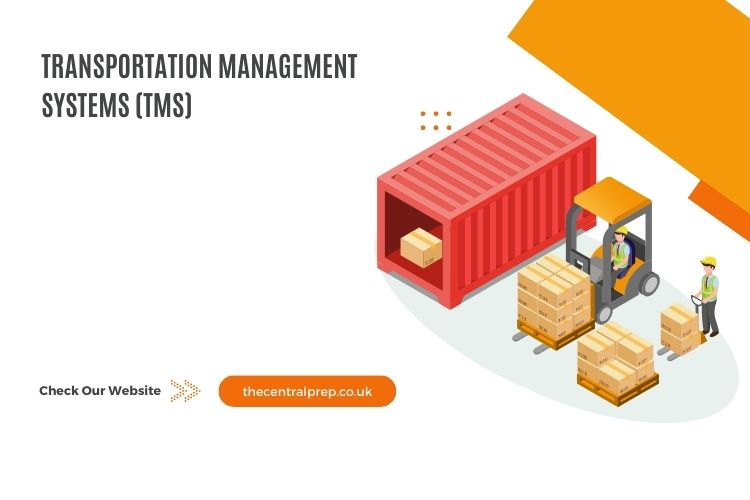Definition of E-Commerce Fulfillment
E-commerce fulfillment refers to the end-to-end process of receiving, processing, and delivering customer orders placed through online platforms. It encompasses inventory management, order processing, shipping logistics, and customer service to ensure a smooth and satisfactory shopping experience.
The Growing E-Commerce Landscape in the UK
The UK has witnessed a significant surge in e-commerce adoption, with more consumers turning to online shopping for convenience and accessibility. The growth of the e-commerce market in the UK has created numerous opportunities for businesses to expand their online presence and reach a broader customer base.
Efficient Fulfillment in E-Commerce
Efficient e-commerce fulfillment is crucial for maintaining customer satisfaction, encouraging repeat purchases, and building brand loyalty. With increasing competition, businesses that streamline their fulfillment operations stand a better chance of succeeding in the dynamic e-commerce landscape.
Overview of the Blog Post
This blog post explores the critical aspects of the best e-commerce fulfillment in the UK, providing insights into its definition, challenges, and trends. Additionally, it delves into different fulfillment strategies, best practices, and the role of technology in enhancing fulfillment operations. The post also includes case studies of successful e-commerce fulfillment strategies and examines their impact on customer experience. Finally, it offers a glimpse into the future of e-commerce fulfillment and its role in a sustainable Omni channel world.
Understanding E-Commerce Fulfillment
Definition and Components of E-Commerce Fulfillment
E-commerce fulfillment comprises several essential components: inventory management, order processing, warehousing, and shipping. Each stage is crucial in ensuring customer orders’ smooth and efficient fulfillment.
Types of E-Commerce Fulfillment Models (In-house vs. Third-Party)
Businesses can choose between in-house fulfillment, handling all fulfillment operations, or outsourcing to third-party (3pl) fulfillment providers. Each model has advantages and challenges, depending on the business’s scale, resources, and specific requirements.
Critical Challenges in E-Commerce Fulfillment
1. Inventory Management Managing inventory levels efficiently is critical to prevent stock-outs and overstocking, leading to lost sales and increased carrying costs.
2. Order Processing and Accuracy Accurate order processing is essential to avoid shipping errors, delays, and customer dissatisfaction.
3. Shipping and Delivery Logistics Selecting reliable shipping carriers and optimizing delivery routes are vital to ensure timely and cost-effective deliveries.
4. Returns and Customer Service An effective returns management process and exceptional customer service are essential for handling returns and resolving customer inquiries promptly.
E-Commerce Fulfillment Trends in the UK
The Rise of Same-Day and Next-Day Delivery Consumers in the UK have come to expect faster delivery options, leading to the popularity of same-day and next-day delivery services offered by various retailers.
Personalization and Custom Packaging Personalized packaging can enhance the unboxing experience and leave a lasting impression on customers, fostering brand loyalty.
Automation and Robotics in Warehousing Automation and robotics technology are revolutionizing warehouse operations, enabling faster order processing and reducing human errors.
Integration of AI and Machine Learning
AI and machine learning are integrated into fulfillment processes, helping businesses optimize inventory forecasting and route planning.
Sustainable Fulfillment Practices Consumers are increasingly conscious of environmental issues, making sustainable fulfillment practices, such as eco-friendly packaging and green logistics, a significant trend.
Choosing the Best E-Commerce Fulfillment Strategy
Evaluating Business Needs and Objectives Before selecting a fulfillment strategy, businesses must assess their unique needs, growth projections, and budget constraints.
Pros and Cons of In-house Fulfillment
In-house fulfillment offers greater control over operations but requires significant infrastructure, staff, and technology investments.
Benefits of Outsourcing to Third-Party (3pl) Fulfillment Providers Outsourcing to third-party fulfillment centers can reduce costs, enhance scalability, and allow businesses to focus on core competencies.
Hybrid Fulfillment Models for Enhanced Flexibility A hybrid approach, combining in-house and third-party (3pl) fulfillment aspects, offers a flexible solution tailored to the business’s specific requirements.
Best Practices for Optimal E-Commerce Fulfillment
Efficient Inventory Management
1. Utilizing Inventory Tracking Systems Implementing robust inventory tracking systems enables real-time visibility of stock levels, reducing the likelihood of stock-outs.
2. Implementing Just-in-Time Inventory Adopting a just-in-time inventory approach helps minimize holding costs while ensuring adequate stock levels to fulfill customer orders.
Streamlining Order Processing
1. Automated Order Management Systems Implementing automated order management systems streamlines the order processing workflow, improving accuracy and efficiency.
2. Order Picking and Packing Strategies Optimizing order picking and packing processes reduces fulfillment time and minimizes errors during the packaging stage.
Optimizing Shipping and Delivery
1. Partnering with Reliable Carriers Collaborating with reputable shipping carriers ensures timely and reliable deliveries, enhancing the customer experience.
2. Implementing Real-Time Shipping Rate Calculations Providing customers with real-time shipping rate calculations allows for transparent shipping costs, reducing cart abandonment rates.
Enhancing Customer Service and Returns Management
1. Simplifying Return Procedures Simplifying and expediting the returns process can improve customer satisfaction and increase the likelihood of repeat purchases.
2. Handling Customer Inquiries and Complaints Promptly addressing customer inquiries and complaints demonstrates excellent customer service and builds trust in the brand.
The Role of Technology in E-Commerce Fulfillment UK
Warehouse Management Systems (WMS) WMS software optimizes warehouse operations, from inventory tracking to order fulfillment, boosting efficiency and reducing errors.
Order Management Systems (OMS)
OMS facilitates seamless order processing by centralizing and automating order information across various sales channels.
Transportation Management Systems (TMS)

TMS optimizes transportation routes, reducing shipping costs and transit times for improved customer satisfaction.
Tracking and Analytics Tools
Utilizing tracking and analytics tools provide valuable insights into fulfillment performance, enabling continuous improvement.
AI and Robotics in Fulfillment Centers

Integrating AI and robotics enhance order accuracy, warehouse productivity, and fulfillment speed, creating a competitive advantage.
Overcoming E-Commerce Fulfillment Challenges
Managing Seasonal Fluctuations Strategically planning for seasonal fluctuations ensures adequate inventory and resources during peak periods.
Handling High-Volume Sales and Promotions Preparing for high-volume sales and promotions helps prevent fulfillment bottlenecks and delivery delays.
Addressing Last-Mile Delivery Challenges Innovative last-mile delivery solutions, such as local fulfillment centers and crowd-sourced delivery, can tackle last-mile challenges.
Mitigating Risk and Minimizing Errors Implementing risk management strategies and quality control measures reduces fulfillment errors and associated costs.
Case Studies:
Successful E-Commerce Fulfillment Strategies
Scaling Up with Third-Party (3pl) Fulfillment success story showcases how partnering with a third-party (3pl) fulfillment provider facilitated rapid expansion and improved fulfillment efficiency.
Embracing Robotics for Improved Efficiency case study highlights the benefits of integrating robotics into warehouse operations, resulting in faster order processing and enhanced accuracy.
Prioritizing Sustainability in Fulfillment Operations Sustainable fulfillment practices demonstrate how eco-friendly initiatives can resonate with environmentally-conscious consumers.
E-Commerce Fulfillment and Customer Experience
The Impact of Fulfillment on Customer Satisfaction Efficient and reliable fulfillment significantly influences customer satisfaction, leading to positive reviews and recommendations.
Delivering a Seamless Shopping Experience a seamless shopping experience, from order placement to delivery, fosters customer loyalty and drives repeat business.
Leveraging Fulfillment to Build Customer Loyalty Investing in fulfillment excellence can turn customers into loyal brand advocates, contributing to long-term business success.
The Future of E-Commerce Fulfillment UK
Anticipated Trends and Innovations The future of e-commerce fulfillment will likely involve advanced technologies, greater personalization, and an increased focus on sustainability.
The Role of E-Commerce Fulfillment in an Omni Channel World E-commerce fulfillment will continue to play a central role in the seamless integration of online and offline retail channels.
Sustainable and Green Fulfillment Practices As environmental awareness grows, sustainable fulfillment practices will become a standard for responsible e-commerce businesses.
Conclusion
E-commerce fulfillment is critical to online retail success in the UK. By understanding the components, challenges, and trends of the best e-commerce fulfillment, businesses can develop efficient strategies that meet customer demands, enhance satisfaction, and foster brand loyalty. Embracing technology, optimizing processes, and prioritizing sustainability will empower businesses to thrive in the evolving e-commerce landscape, ensuring a successful and customer-centric future.
